RECLAIMING OUR ANALOG HERITAGE IN THE DIGITAL-ERA
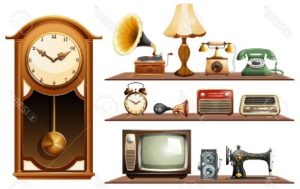
During my childhood, I would attend school, study a bit and play the remainder of the time outdoors till my parents yanked me and heaved me home after it got dark. I wish I could get into a time machine and go back in time to relive those glorious tech-free analog days, which were the best days of my life. We did not have smartphones or fancy gadgets. Simple things such as a tennis ball or marbles were enough to keep us enthralled the entire day. Screen glued kids of today are just a shadow of what we were. They may never know the glee of playing in grime and dirt under the scorching sun, the ecstasy of splashing about in puddles of fresh rainwater, the rapture of puttering in the backyard, the thrill of hopping over walls to steal mangoes on the way back from school, the amusement of endless pranks at school, the exhilaration of punching and clobbering up the winning cricket team after a loss, the euphoria of clandestinely lighting up a cigarette, the agony of suffering bruises while playing it rough, the misery of being ambushed and thrashed by the rival gang and the charm and allure of playing hide and seek under the moonlight.
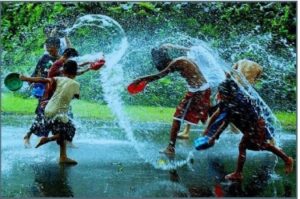
Shortly afterwards, after I grew up to be a junior college student in Hyderabad, I went backpacking for two months in the hilly terrains of the Himalayas on a shoestring budget. I could travel that far by myself as my father was an officer in the Railways. That entitled me to a free first-class train pass as a family member. For those two months, none of my friends or family knew where I was, nor did they have any idea whether I was living or dead. I might have dialled my parents a couple of times to let them know I was well whenever I reached a town having an STD booth. Long-distance calls were prohibitively expensive, so my conversations never lingered more than a couple of minutes. I frequently mailed letters that reached my parents a week later. There were no cell phones, no email, no texting, no digital photography. I hauled money as cash, which I stashed away in my underwear from the reach of pick-pocketers. I toted a Minolta camera which took photographs on a film, 36 frames per film, which we could develop only at a studio.
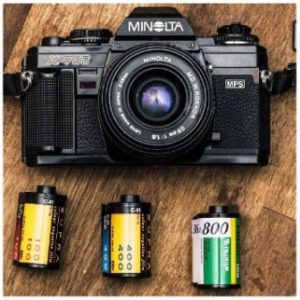
No kid today will ever have that experience. Anybody travelling today would be texting, emailing, posting on Facebook and tweeting every moment. A sense of being in a new place is not there today. Once I got on the train, there was no way to contact the world I had left behind. In short, cell phones and modern technology have taken away the sense of isolation and have made us perpetually available. I see people today unable to function without a smartphone and mighty scared to leave home without a cellphone.
Come to think; we have learnt to use and forge earth’s elements to manufacture computers and phones. But any gift of God could eventually become a curse if we become profoundly entrenched and attached to it and are incapable of detaching ourselves. Creating and living in a digital scenario in which we have total control over every possible outcome, contrary to living with nature that is unpredictable, dangerous and chaotic, is akin to playing God or, worse, becoming God itself. Therefore we must know how to detach from digital and embrace analog because, with every irrational embrace of new technology, we could be giving rise to dystopian consequences.
For instance, in the movie Matrix, a war erupts in the early 21st century, between humanity and intelligent machines, in which humanity loses the battle, after which all surviving humans are subsequently apprehended and restrained in a “Matrix,” which is a shared alternative reality, constructed to imitate the world as it existed in 1999. The survivors could live the rest of their lives, happily plugged into the Matrix blissfully unaware that they are floating naked in a human glass pod with IV vitamins and calories to sustain their brains and bodies in what is purely digital existence. Such dystopian futures are also portrayed in several films such as “Blade Runner 2049 and “Minority Report”. We are today not far behind these films. Shortly, we would be having humans living digitally and virtually in similar conditions if we continue to distance ourselves from nature and lead a technology-imbued, analogue-obsolete existence.
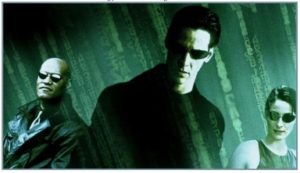
Under such digital existence, our future food could seem like an asymmetrical fancy-looking block of ideally constituted carbon molecules with a customised, highly engineered protein, fat, and carbohydrates. This nutriment will not only match a person’s precise biological needs but, when paired with VR goggles and a haptic headset, will allow one to experience all the joy of happily chowing down a Thalappakatti or Paradise biryani with a bottle of chilled coke. As far as spirituality is concerned, in the digital world, we may not have to meditate like Buddhist monks in a monastery to attain enlightenment and bliss. We would experience enlightenment by merely strapping on Oculus Rift with software like Tripp to create an indescribable spiritual experience. A sedentary digital lifestyle, rapid internet access to pornography, virtual reality headsets, the evolution of love dolls or sex dolls as actual artificially intelligent humans capable of giving a man or woman all the sensual pleasure they might derive from intercourse with a real, attractive human being is leading to reduced levels of hormones. Doug Wilsons book “Ride Sally Ride”, which is being made into a movie, hilariously describes the slippery slope of sex doll advancement and its consequences.
If we let ourselves go so deep into the digital territory, we will have to give up part of us that makes us human. Analog experiences engage our senses and connect us to people, unlike digital, which disconnects and isolates us. We have to start filling our world with real-world connections and activities and learn to unplug the digital and put it back in its box. People who have started embracing the analog world are practising digital
decluttering and deleting Facebook accounts. Such yearning to return to analogue reveals our craving to reconnect with humanity. David Sax’s amazing book “The Revenge of Analog: Real Things and Why they Matter” talks about the resurgence of all things analog, including analog objects such as Vinyl records, board games, paper notebooks, brick-and-mortar bookstores that have a lmost become extinct.

Digital technology may lead us away from tasting God’s creation by immersing us in a fake world but if I had to choose between the two worlds, I would not totally discard the digital but I would continue to embrace the analog while responsibly and minimally utilising the digital.
So, even when the erratic and turbulent analog world feels way better than the sham and phoney digital world. I would still need the digital space to write blogs on my website (www.jayanthmurali.com), shop online and do myriad other things. For instance, We at the Armed Police are planning to reach out during the current pandemic through the internet to launch an outreach initiative that rolls out varied voluntary services to society and facilitates virtual volunteers to offer theirs by enrolling themselves through our website “Letsfightcorona.com (under construction), which will be in place within the next three days. I am also planning to reach donors by hosting a web-page to raise funds for the Government by running a distance of 50 km to fight the ongoing Corona pandemic. Therefore, despite leading an amazing analog life, we could continue using digital conveniences responsibly while celebrating the best of both worlds.
Source from: epaper/dtnext/chennai/dt:30.05.2021
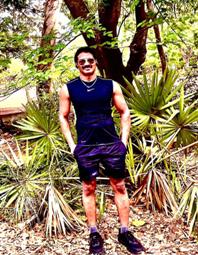 Dr.K. Jayanth Murali is an IPS Officer belonging to 1991 batch. He is borne on Tamil Nadu cadre. He lives with his family in Chennai, India. He is currently serving the Government of Tamil Nadu as Additional Director General of Police, Armed Police.
Dr.K. Jayanth Murali is an IPS Officer belonging to 1991 batch. He is borne on Tamil Nadu cadre. He lives with his family in Chennai, India. He is currently serving the Government of Tamil Nadu as Additional Director General of Police, Armed Police.

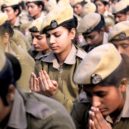
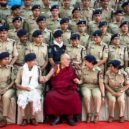
Jun 14, 2021 at 1:33 PM /
Digital is my input…but my experience is always ..real
analog…